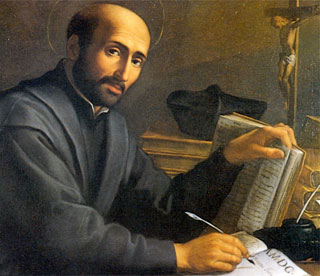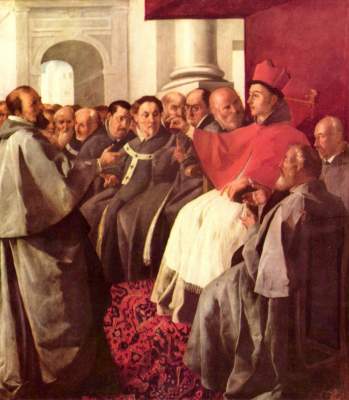Hello friends, Bishop Andy C. Lewter here with another one of my installments on Church History. As a church historian I spend a great deal of my time discussing with students the particulars of the Protestant Reformation.
Anyone who has listened to me teach over any period of time will tell you that I spend a great deal of time teaching on Martin Luther and the rise of the Protestant Reformation of 1517 to 1531. Luther along with characters such as Calvin, Zwingli, Menno and Wycliff are responsible for so much of what we believe and enjoy as Protestants.
Here of late however, I have re-visited the reality that as far sweeping as the Protestant Reformation was in Europe and how it spread globally as a commentary and criticism of Roman Catholicism, the truth of the matter is that the Roman Catholic Church did not remain stagnant and un-responsive to the world that was around them during the Protestant Reformation. In this video I want to look at the Roman Catholic “Counter-Reformation” which was an attempt on the part of Roman Catholic Church to make changes within the institution of the church in order to prevent so many of its members to turn to those denominations outside of the Roman Catholic Church.
In that regard, there is no person any more associated with the Roman Catholic Counter Reformation than Ignatius of Loyola, the found of the Jesuit religious order in the Roman Catholic Church. This Ignatius is not to be confused with Ignatius of Antioch, the 2nd century church father who was martyred. It should also be noted that the current pope, Francis, is a member of the Jesuit religious order.
So give me a few minutes of your time for me to talk to you about Ignatius of Loyola which will include his biography and his founding of the Jesuit religious order. Ignatius of Loyola was born as Iñigo López de Loyola in 1491 in the Basque region of Spain, in the town of Azpeitia. As a young man, Ignatius pursued a career in the military, demonstrating a strong martial spirit and a desire for fame. However, his life took a dramatic turn in 1521 when he was severely wounded by a cannonball during the defense of Pamplona.
While recovering, Ignatius experienced a profound spiritual awakening after reading religious texts about the lives of Jesus Christ and the saints. This conversion led Ignatius to abandon his military ambitions and devote himself to a life of prayer and study. He traveled to various religious sites, including a pivotal stay in Manresa, where he developed the “Spiritual Exercises,” a set of meditations and prayers designed to deepen one’s relationship with God.
In 1534, Ignatius and a group of companions took vows of poverty and chastity, committing themselves to the service of God. This group would later be formally recognized as the Society of Jesus, or the Jesuits, in 1540. Under Ignatius’s leadership, the Jesuits became known for their educational, missionary, and charitable works, playing a significant role in the Counter-Reformation.
Ignatius of Loyola passed away on July 31, 1556, in Rome, Italy. He died of natural causes, likely complications related to chronic stomach issues. Ignatius was canonized as a saint by the Catholic Church in 1622 and is remembered as a pivotal figure in Christian history, particularly for his role in founding the Jesuit order.



